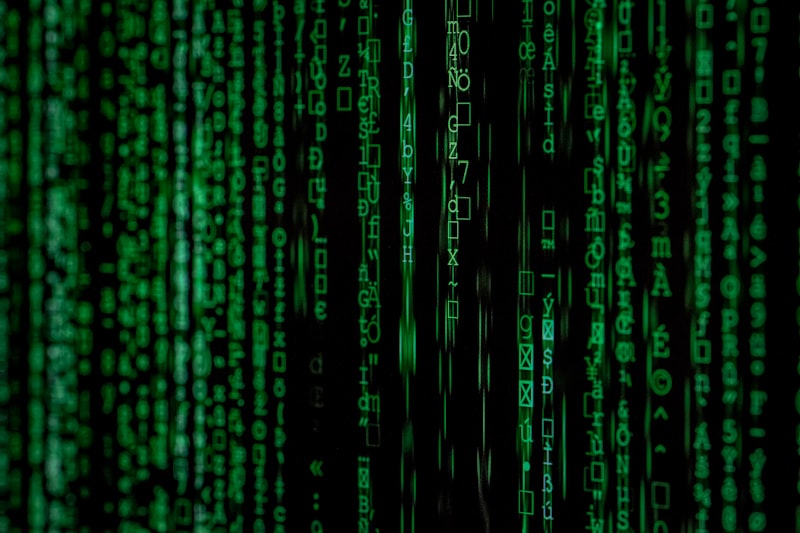The Future of Blockchain Technology: Cryptocurrency and Valuable Documents

The future of blockchain technology holds immense potential for revolutionizing various industries, including finance, healthcare, and even the way we handle valuable documents. With cryptocurrencies at the forefront, blockchain has emerged as a secure and decentralized solution that promises transparency and efficiency.
Cryptocurrency, such as Bitcoin, is one of the most popular applications of blockchain technology. It enables peer-to-peer transactions without intermediaries like banks, reducing costs and increasing transaction speed. But it doesn’t stop there. The underlying blockchain technology has far-reaching implications beyond digital currencies.
One promising area is the management of valuable documents. Blockchain offers an immutable and tamper-proof ledger where records can be securely stored. Imagine a world where important documents like property titles, academic certificates, or legal contracts are stored on a blockchain. This would eliminate the need for physical copies, reduce fraud, and streamline processes.
By utilizing smart contracts, blockchain technology can automate the execution of agreements, making them self-executing and self-verifying. This eliminates the need for intermediaries and reduces the risk of human error or manipulation. For instance, a smart contract could ensure that a property title transfer occurs only when the predetermined conditions, such as payment and verification of ownership, are met.

Moreover, blockchain-based systems can enhance data security and privacy. Traditional databases are vulnerable to hacking and data breaches. In contrast, blockchain employs advanced cryptographic techniques to protect sensitive information. Data stored on a blockchain is distributed across multiple nodes, making it incredibly difficult for hackers to compromise the system.
Furthermore, blockchain technology opens up new possibilities for supply chain management. By recording every step of a product’s journey on a blockchain, businesses can achieve greater transparency and traceability. Consumers can verify the authenticity and origin of products, enhancing trust in the marketplace.
The future of blockchain technology is promising, with its impact extending beyond cryptocurrencies. From revolutionizing the way we handle valuable documents to transforming supply chain management, blockchain has the potential to reshape numerous industries. Embracing this technology can lead to increased efficiency, enhanced security, and improved trust in various sectors of our economy. The possibilities are endless, and as blockchain continues to evolve, we can expect even more exciting developments on the horizon.
Revolutionizing Finance and Beyond: How Blockchain Technology is Reshaping the Future of Cryptocurrency
Introduction:
Can you imagine a world where financial transactions are secure, transparent, and decentralized? A world where middlemen and intermediaries no longer hold sway over our money? Thanks to blockchain technology, this futuristic vision is becoming a reality. In this article, we will explore how blockchain is revolutionizing finance and reshaping the future of cryptocurrency.

The Power of Blockchain:
At its core, blockchain is a distributed ledger that records transactions across multiple computers. This innovative technology eliminates the need for a centralized authority, such as a bank, to verify or authorize transactions. Instead, it relies on a network of computers, known as nodes, which work together to validate and store information securely.
Enhanced Security and Transparency:
One of the key advantages of blockchain is its unparalleled security. Each transaction recorded on the blockchain is encrypted and linked to the previous transaction, forming a chain of blocks. Once a block is added, it becomes nearly impossible to alter or tamper with the data, making it highly resistant to fraud and hacking attempts. Moreover, the transparent nature of blockchain allows anyone to view transactions while protecting the identities of individuals involved, enhancing trust and accountability.
Decentralization and Financial Inclusion:
Blockchain’s decentralized nature is a game-changer for the financial industry. Traditional financial systems often exclude millions of people around the globe due to various barriers. However, blockchain enables peer-to-peer transactions without intermediaries, reducing costs and eliminating geographical limitations. This empowers individuals who lack access to traditional banking services, allowing them to participate in the global economy and manage their finances independently.
Transforming Cryptocurrency:
Cryptocurrency, such as Bitcoin and Ethereum, is perhaps the most well-known application of blockchain technology. With blockchain as its foundation, cryptocurrency provides a digital alternative to traditional currencies, enabling secure and efficient online transactions. The decentralized nature of blockchain ensures that cryptocurrencies are not controlled by any central authority, providing users with more control over their assets and reducing the risk of inflation.
Conclusion:
Blockchain technology is reshaping the future of cryptocurrency and revolutionizing finance as we know it. Its enhanced security, transparency, and decentralization make it a powerful tool for transforming various industries beyond finance, including supply chain management, healthcare, and voting systems. As blockchain continues to evolve and gain wider adoption, we can expect to see further innovations and transformative changes that will shape our world for the better.
Securing Digital Assets: Exploring the Potential of Blockchain in Safeguarding Valuable Documents

Are you worried about the security of your valuable digital assets? In an increasingly digital world, protecting important documents and information has become a crucial concern. Fortunately, there’s a groundbreaking technology that holds immense potential in safeguarding these assets – blockchain.
Blockchain, often associated with cryptocurrencies like Bitcoin, is a decentralized and immutable record-keeping system. Its unique features make it an ideal solution for securing valuable documents. Let’s delve deeper into how blockchain can revolutionize digital asset security.
One of the key benefits of blockchain is its immutability. Once a piece of information is recorded on the blockchain, it becomes practically impossible to alter or tamper with. This makes it highly secure for storing sensitive documents such as legal contracts, intellectual property, or financial records. By leveraging complex cryptographic algorithms, blockchain ensures that every transaction and document is securely encrypted and verified.
Moreover, blockchain operates on a decentralized network, eliminating the need for a central authority or intermediary. Instead of relying on a single entity to validate and authenticate transactions, blockchain utilizes a distributed consensus mechanism. This means that multiple participants in the network verify and agree upon the validity of each transaction. As a result, the chances of fraudulent activities or unauthorized changes are significantly reduced.
Another noteworthy aspect of blockchain is transparency. While it ensures data privacy and confidentiality, it also provides a transparent view of all transactions and document history. This transparency can be immensely beneficial in enhancing trust and accountability, especially in industries where document integrity is paramount. From real estate transactions to supply chain management, blockchain’s transparent nature contributes to better traceability and eliminates the need for intermediaries.
From Bitcoin to Beyond: The Evolving Landscape of Cryptocurrency and Its Impact on Traditional Banking Systems
In today’s ever-evolving digital world, the concept of money has taken a revolutionary turn with the emergence of cryptocurrencies. One such cryptocurrency that has gained significant attention is Bitcoin. However, Bitcoin is just the tip of the iceberg in the vast landscape of digital currencies reshaping our traditional banking systems.
Cryptocurrencies are decentralized digital assets built on blockchain technology, offering secure and transparent transactions without the need for intermediaries like banks. This disruptive innovation has sparked a paradigm shift in how we perceive and utilize money.
The impact of cryptocurrencies on traditional banking systems cannot be overstated. While some view them as a threat, others recognize their potential to revolutionize financial services. Cryptocurrencies provide individuals with greater control over their funds, eliminating the reliance on centralized institutions. With cryptocurrencies, transactions can be conducted directly between parties across borders, bypassing the lengthy processes and fees associated with traditional banking transfers.
Moreover, the underlying blockchain technology behind cryptocurrencies has implications beyond finance. Blockchain enables the creation of decentralized applications and smart contracts, which have the potential to streamline various industries. From supply chain management to healthcare records, blockchain technology offers transparency, immutability, and efficiency in record-keeping and authentication.
However, challenges remain on the path towards widespread cryptocurrency adoption. Volatility is a significant concern, as the value of cryptocurrencies can fluctuate dramatically within short periods. Additionally, regulatory frameworks and security concerns pose obstacles that need to be addressed to ensure the stability and security of this evolving ecosystem.
Despite these challenges, the continued growth and development of cryptocurrencies cannot be ignored. Major financial institutions and corporations are recognizing the transformative potential of this technology. They are exploring ways to integrate cryptocurrencies into their existing systems, paving the way for mainstream adoption.
The evolving landscape of cryptocurrency, with Bitcoin as its pioneering force, is redefining traditional banking systems. The rise of cryptocurrencies brings forth new possibilities for financial inclusion, efficiency, and innovation. As this digital revolution unfolds, it is crucial to strike a balance between embracing the potential benefits while addressing the challenges to ensure a secure and sustainable future for both cryptocurrencies and traditional banking.
Unlocking Efficiency: How Blockchain Technology is Streamlining Document Verification Processes
Have you ever wondered how the tedious process of document verification could be made faster and more efficient? Well, look no further! Blockchain technology is revolutionizing the way we verify documents, making the entire process seamless and secure. In this article, we will delve into the details of how blockchain is streamlining document verification processes, unlocking a new era of efficiency.
Traditional methods of document verification have always been time-consuming and prone to errors. Picture this: stacks of papers, manual checks, and endless waiting times. It’s enough to drive anyone crazy! But with blockchain technology, these challenges are becoming a thing of the past.

So, how does it work? Blockchain, at its core, is a decentralized and immutable ledger that records information in a transparent and secure manner. Each transaction or piece of data is stored in a block, which is then linked to previous blocks, creating a chain of information. This distributed nature eliminates the need for a central authority, reducing the risk of fraud and manipulation.

When it comes to document verification, blockchain provides a robust solution. By storing document hashes on the blockchain, every change or alteration made to a document can be easily detected. This ensures the integrity and authenticity of the document, making it virtually impossible to tamper with.
Moreover, blockchain enables instant verification without the need for intermediaries. Imagine a world where you don’t have to wait for days or weeks to get your documents verified. With blockchain, the verification process becomes almost instantaneous, saving time and resources for both individuals and organizations.
Blockchain technology also enhances security by encrypting data and providing access control. Documents can be securely shared between authorized parties, eliminating the risks associated with centralized storage and data breaches. Additionally, the transparency offered by blockchain ensures that all stakeholders have visibility into the verification process, fostering trust and accountability.
Blockchain technology is a game-changer when it comes to streamlining document verification processes. Its decentralized nature, immutability, and enhanced security features make it the perfect tool for ensuring efficient and reliable verification. So, say goodbye to lengthy waiting times and hello to a future where document verification is seamless and hassle-free. Embrace the power of blockchain and unlock a world of efficiency!




